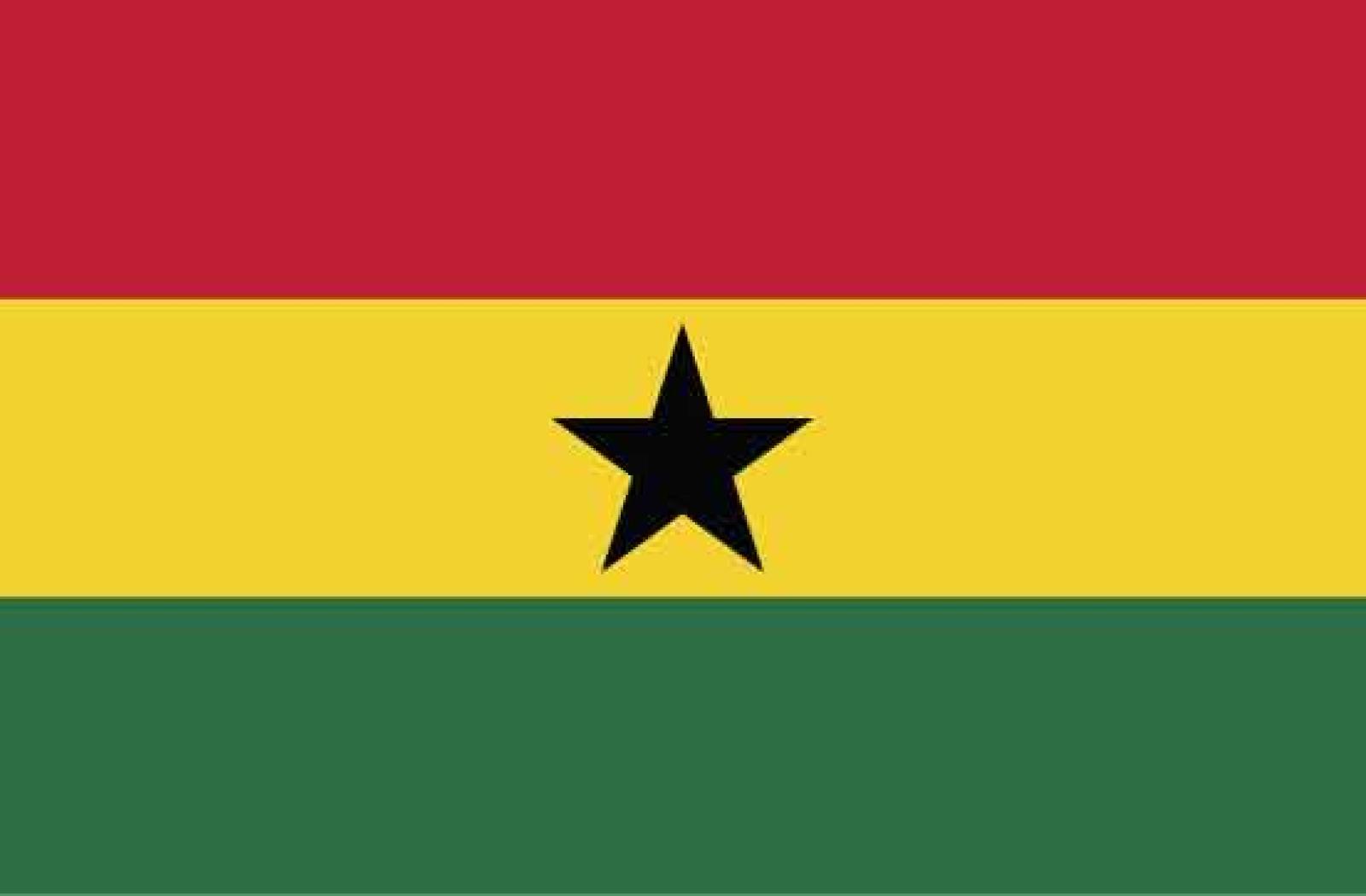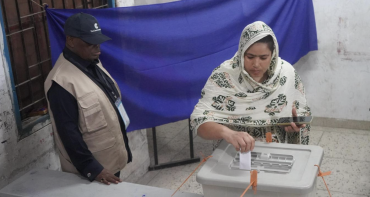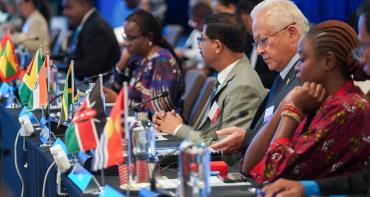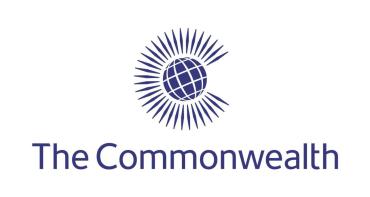Interim Statement

Key Findings
- This is the interim statement of the Commonwealth Observer Group, and it is issued with the process yet to be completed. The critical results process is on-going and we continue to follow this. We will issue a Final Report at a later stage, containing our final conclusions on the entire process.
- The 7 December 2012 elections were Ghana’s 6th elections since the restoration of democracy in 1992. The elections were contested by eight presidential candidates from seven political parties and over 1,300 parliamentary candidates, illustrating that freedom of association is provided for, and that the elections were competitive. The campaign was highly active and generally peaceful, though characterized by a vigorous competition between the two leading parties. The various calls for peace, including the Kumasi Declaration involving all Presidential candidates, were helpful and are to be commended. However, some incidents and localized tensions involving party supporters were reported.
- While it is true that freedom of association and participation are fully provided for in Ghana, the level of women’s participation as candidates, and thus as representatives, remains very low. None of the Presidential aspirants was female and just 10% of the parliamentary candidates were women. For a country with an increasingly strong democratic reputation this remains a concern.
- Stakeholders expressed their confidence in the role and capacity of the EC and generally it managed the process well. The undertaking of a constituency demarcation review and a biometric voter registration, both in an electoral year, was a major undertaking on behalf of the EC and represented a major effort. While there was some uncertainty and dispute regarding the creation of the new constituencies, this was ultimately upheld by the Supreme Court. The EC was put in a difficult position due to the late publication of the census data and the late creation of new Districts. The timing of the revision was far from ideal, which needs to be kept in mind for future elections.
- The voter register was criticized in 2008, including by the Commonwealth, and it is important to highlight that the new biometric voter register represents a significant improvement; providing for increased participation levels as well as increased safeguards for the integrity of the process. The main concern raised was in regard to reports of underage voters on the list in some areas. This is something to be addressed in the future and political parties and community leaders must help the EC in this regard.
- On the day of the elections our teams reported from seven of the ten Regions of Ghana. The process proceeded as planned in most areas and the election day was largely peaceful. There was a large turnout of voters, the process was transparent and the secrecy of the vote generally provided for. Problems were noted with the late delivery of materials in some areas and problems with the voter verification machines in some places, resulting in delays and uncertainty and frustration for affected voters. As a consequence the voting in some 431 affected polling places was extended to 8 December.
- Our teams followed the count at polling stations and the tabulation at the Constituency level. Transparency was maintained, with local observers and party agents present and agents able to get a copy of the result for later verification by the parties. The final results processes are on-going and we will reflect more on these in our Final Report, but we note the comprehensive coverage offered by TV, radio and online keeping people updated on the results as they are announced.
- We urge all parties and their supporters to remain constructively engaged, await the outcome and use official channels in case of any complaints. For the EC it is paramount that the high level of transparency achieved thus far is maintained, to ensure accountability and confidence and that the results are arrived at in a timely manner. Ghana has a burgeoning electoral reputation to uphold. Up to this point, the 2012 elections have met many of the benchmarks for democratic elections, though aspects of the administrative system and the environment for the polls can still be improved further. As the process concludes, we urge all parties and their supporters to be patient as the final stages of the 2012 elections unfold.
Election Campaign and Political Participation
The election campaign was highly active, with political parties and candidates holding rallies and meetings across the country, and utilizing poster campaigns and TV advertising extensively, and with the Presidential aspirants engaging in a number of substantive debates. Overall the campaign was largely peaceful, though characterized by the sometimes fierce rivalry between the two largest parties and some isolated incidents were reported.
The Kumasi Peace Declaration was a very positive initiative and all candidates are to be commended for their endorsement of it. While the various peace campaigns are highly welcomed, their perceived need reflects a lingering fear of violence and uncertainty linked to elections in Ghana, which is unfortunate. These fears are exacerbated by the continuing use of so-called “macho men” by political parties, and the perception of impunity for those responsible for election-related violence. While all stakeholders have a role to play in addressing these issues the political leadership on all sides and at all levels must look to themselves in this regard. Elections need not and should not be a time of fear and uncertainty.
The Inter Party Advisory Committee (IPAC) provides a useful consultative mechanism between the EC and political parties and other stakeholders and contributes greatly to the level of confidence in the process, ensuring parties and other stakeholders are involved in most aspects of the process.
There is a vibrant media in Ghana and a comprehensive coverage was provided with a variety of voices and perspectives offered, though media in general provided the bulk of coverage to the two largest parties. There was allegedly some provocative commentary on some radio programming. It was also alleged to our team that there were misuses of incumbency. Such practices were also reported in past elections and need to be addressed where they occur.
More than 50% of the population is female yet the level of women’s representation as candidates is extremely low, which is disappointing. None of the Presidential candidates was a woman; though three of the running mates were. Further, only some 10% of the parliamentary candidates were women, and the level of women’s representation in the new parliament could be very low. The nature of politics in Ghana, and the lack of willingness of parties to proactively promote women’s participation, serve as a barrier to women’s participation in political life in Ghana.
Voting, Counting and Results
On Election Day Commonwealth teams reported a largely peaceful process and in the majority of cases it was well managed and voters were free to exercise their right to vote. There were delays in some areas, including Accra, and in a limited number of instances this even went on for quite a few hours. However, the people remained patient as they awaited the start of polling.
The layout of stations varied, and was not always conducive to proper scrutiny and control by poll officials. Further, in many instances, and notably the larger more crowded polling places, voters had trouble identifying their correct polling place. This was particularly so when stations were sub-divided by alphabetical groupings. It is unfortunate that some voters were inconvenienced or even disenfranchised due to such confusion. Proper and timely signage plus the provision of adequate numbers of staff to manage the queues and direct voters to their right lines would help address this problem.
Party agents were present in virtually all stations, providing for transparency and accountability. However, in some instances they played an intrusive role and even were involved in administering the process. Prior to the election, there was concern at the number of underage persons registered to vote, but our teams did not find this to be a problem on the day.
The regulations required that voters had to be verified by their finger print to be allowed to vote. This is a stringent requirement, particularly as the voter details and photos were clearly on the register and on their voter card. This stringent requirement meant that the verification machines had to work as there was no fall-back option. While they did in the vast majority of cases there were also quite a number of cases where problems occurred. This resulted in serious frustration for voters and poll officials alike and to the re-scheduled polling in some 431 polling stations.
The vote count at the polling stations was transparent, with party agents able to follow the process closely. This was also the case during the tabulation process. At the polling station level party agents were able to get a copy of the result and could therefore check and verify the results later tabulated and announced at the constituency and national levels. Results from polling stations and constituencies were also broadcast extensively on TV, radio and online, enabling people to follow on an on-going basis as the final results of the 2012 election were calculated.
Accra, 9 December 2012



